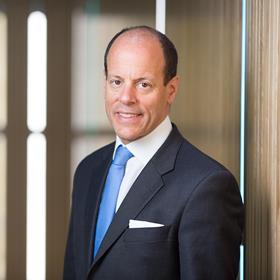After a tumultuous 2020, property’s leading figures share their hopes and expectations for 2021 as the year gets off to a rocky start with yet another lockdown.

Charles Weeks
Head of Europe and AsiaPacific real estate equity, Barings
While we still have the tough winter months ahead, from the middle of the year we expect to see economic conditions improve as government restrictions are relaxed and everyday life begins to normalise.
The contrasting fortunes of the retail and logistics sectors are already self-evident, while uncertainty surrounding the office sector will begin to clear in 2021. Cuts to corporate footprints due to greater working from home is the consensus view. Yet the relevance of centrally located, high-quality, modern, fully flexible office space remains.
The role of offices in building corporate identity, as well as their function as ‘collaborative hubs’ will grow in importance as the new hybrid work model emerges. Compelling investment opportunities also exist in a variety of accommodation sectors – especially where structural stock shortages exist. In the capital markets, we expect investment volumes to recover in 2021, with improving occupational market conditions and investors again able to physically view assets.
Competition for logistics and residential assets will be fierce and we could see opportunities emerge in the office sector, particularly in the value-add part of the market.

Jonathan Hollick
Head of European real estate and chief investment officer, UBS Asset Management
This year should be fascinating for UK property and we expect to see some of the market dislocation caused by Covid-19 to materialise into buying opportunities with liquidity returning to a wider range of sectors.
One of the main areas we are focusing on is mis-priced income. As an example we’re already seeing opportunities to buy supermarkets on long leases at a substantial yield premium to the occupier’s corporate bond and even a wide spread to the logistics units which supply them.
More broadly, we expect to see some retail assets bottoming out, which should deliver interesting plays on selective retail parks where the income yields are now very attractive.
Offices are set for an intriguing year, as we should start to get real data on how working from home will impact occupation. We maintain a relatively bullish long-term view on the sector but acknowledge potential short-term challenges on occupation levels.
The private rented sector will continue to be a focus of investor attention and it will be interesting to see whether urban living maintains its attraction in a post-Covid world. Our view is that by and large it will.

Helen Gordon
Chief executive, Grainger
My aspirations are that once the majority of people have been vaccinated we will see a bounce-back. Hospitality and leisure can thrive on the back of people wanting to get back out there, and people will be more community-minded and society in general a lot more caring.
As we emerge, I believe we will see creativity and imagination come into play to redesign and repurpose spaces, particularly in retail.
Much thought will go into how we occupy office spaces in the future. Although still essential, offices are likely to be used differently, providing hubs and places to meet. As they return to the office, some businesses will need to rebuild their teams, with the built environment playing a pivotal role in this. Employees will require support as they adapt to the office or take a train or tube for the first time in a long time.
Income will also be key. Statistics show a high level of savings and a high level of unemployment, with some having saved significantly this year, while many others have depleted their savings. How the government pays for the pandemic while not scaring people off spending requires a real balancing act.

Keith Breslauer
Managing director, Patron Capital
My hope is that the majority of those at risk are swiftly vaccinated. Combined with testing and ongoing vigilance, this should lead to the significant economic recovery that is needed to bring employment back to 2019 levels.
We hope that compassionate venture capitalism continues to be adopted, and our good work in this regard helps create a multiplier effect in the industry and across the wider environment.
We will be surprised by the upside, as the rebound in China continues to filter through Germany and European economies. Combined with the US emerging from its Covid-19 fog, this should re-power the global economy, benefit our markets, improve employment and lead to better financial health for society.
Politicians will be under pressure to address the significant inequality that has widened in the pandemic, leading to sound policy decisions while avoiding missteps in the journey to improving society.
Continue to part five here
Forecast for 2021: looking ahead with hope
- 1
- 2
- 3
- 4
 Currently reading
Currently readingForecast for 2021: looking ahead with hope (part four)
- 5
- 6
- 7
- 8
- 9
- 10
- 11
- 12
- 13
- 14
- 15
- 16
- 17
- 18
- 19
- 20
- 21
- 22
- 23
- 24
- 25
- 26
- 27
- 28
- 29
- 30
- 31
- 32
- 33
- 34
- 35
- 36
- 37
- 38
- 39
- 40
- 41
- 42






































































No comments yet